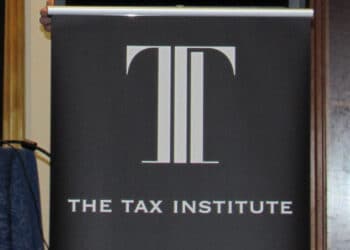Speaking in a recent podcast, Smarter SMSF chief executive Aaron Dunn said that while the government has now established a permanent mechanism to allow companies to execute and sign company documents electronically, determining which SMSF documents can and can’t be executed electronically can be complicated.
Mr Dunn explained that during the pandemic, the government implemented temporary relief measures to allow the execution of company documents in electronic form and for documents to be signed electronically by company officers.
“What we had in place through to the end of March was a set of temporary relief measures around the application of section 127 of the Corporations Act. So, a corporate trustee would be able to execute in an electronic form through an electronic execution or a modified split execution, or some sort of split execution, and you’d be able to satisfy the requirements within section 127,” he explained.
These temporary measures are now permanent following the passage of the Corporations Amendment (Meetings and Documents) Bill 2021, which received royal assent on 22 February 2022.
These new measures allow a company to be able to execute certain documents such as deeds and meeting-related documents in what is referred to as “a technology-neutral manner”, explained Mr Dunn.
However, Mr Dunn said it’s important that SMSF professionals are aware that these measures specifically relate to signing deeds.
“There are a range of other documents that these measures currently don’t apply to. These measures are simply looking at the way in which meetings can be hosted and the way in which deeds can be executed in accordance with the Corporations Act,” he explained.
At the moment, Mr Dunn said there is a range of Treasury portfolio laws currently excluded from the Electronic Transactions Act.
“For example, the superannuation laws are excluded from the Electronic Transactions Act from having it applied,” he said.
“Over time, there have been some exemptions that have been introduced, and one that we saw during COVID-19 was section 35B, which allowed for the use of a technology-neutral process [such as] wet ink or through electronic means to be able to sign the financial statements of an SMSF.”
Mr Dunn said it is very important to understand the different documents that can be currently be signed using electronic means and things that can’t, particularly in the context of establishing a new fund.
“Let’s look at a new fund. We might have our company set up, we’ve got our constitution, our consents to act, our SMSF trust deed, ATO declarations, member applications, trustee minutes and so forth.
“These permanent measures for electronic execution allow for the signing of the deed to be signed in an electronic form and the constitution is in the same guise as well where it would require a signature. However, once we get to things like consents to act, either a consent to act as a trustee, which is in the SIS Act, or a consent to act as a director, which is in the Corporations Act, because the SIS Act and Corporations Act are Treasury portfolio laws that the Electronic Transactions Act does not apply to, those documents must currently be signed in wet ink.
“So, there is no exclusion or exemption for those to be signed in an electronic form as the law currently stands.”
Mr Dunn said this is also the case for a document like an ATO trustee declaration.
“Section 104A of the SIS Act requires that it must be written and therefore signed. So again, the current measures do not allow for that document to be signed in anything other than wet ink. Then when you look at member applications or resolutions, which are decisions of the deed, you need to be contemplating what the rules of that fund say to determine what form those documents may or may not be able to be executed in,” he explained.
“So, it’s not a straightforward process at the moment. I think there’ll be a lot of people out there in the marketplace that have really adopted the electronic execution measures that are saying, ‘let’s just get everything signed [electronically], because that’s fine’. The short answer is no, it is not fine.”
Mr Dunn said the SMSF industry is addressing this with the government at the moment to try and improve the process going forward.
“There is a little bit of a disconnect at the moment because auditors, [for instance] are saying, well, you’ve done these documents, but they haven’t actually been executed correctly’. While there may not be any qualification or issue that the ATO or auditor has in regards to a particular document, if it came down to a court of law, [the court] might look at issues around whether that person actually signed off and consented to being a director and whether they did in electronic form when they were not allowed to,” he warned.
“Quite clearly, the courts may take a very different position.”
You can listen to the podcast in full here.


